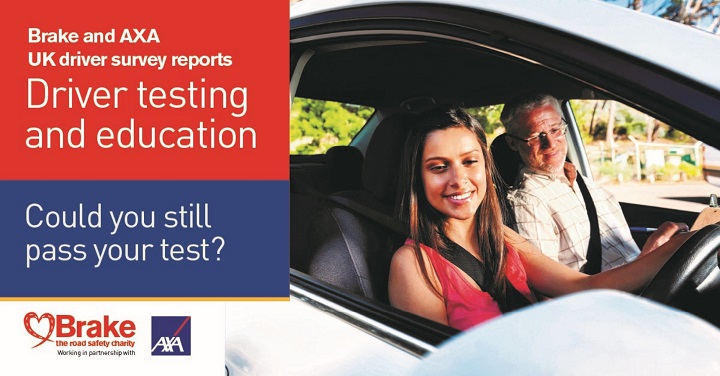
A new report is urging the Government to implement a progressive licensing system that provides safeguards for learner and newly qualified drivers.
Published by Brake and AXA UK, the report points to data which shows 17-24-year-olds account for only 6% of all licence holders in Britain, yet represent 18% of all car drivers killed or seriously injured.
It says that normal brain development means young drivers are often more likely to take risks and are less able to regulate their impulses or understand the consequences of their decisions.
Therefore, it is calling on the Government to implement a progressive licensing system – which introduces elements such as a minimum learning period and a lower blood alcohol limit, while also reducing the number of similar-aged passengers a newly licensed driver can carry.
The report says this has proved successful in reducing road deaths and injuries of young drivers in other countries. For example, a similar system in New Zealand led to a 23% reduction in car crash injuries for 15-19-year-olds, and a 12% reduction for 20-24-year-olds.
What’s more, the report shows there is public support for the move – backed by 63% of respondents to a recent survey.
The report has been welcomed by Sharron Huddleston, bereaved mother and road safety campaigner.
Sharron said: “Our 18-year-old daughter Caitlin was tragically killed as a passenger in her friend’s car. Her friend had passed her test just four months previously and she was also tragically killed, aged 18. The girls weren’t doing anything wrong at the time of the crash.
“The young, novice driver wasn’t speeding but the road was wet and she lost control on entering a bend on a rural road. The car spun and collided into a van travelling in the opposite direction. At the Inquest in 2018, the Coroner put the crash down to the inexperience of the newly qualified driver.
“I support this campaign for a safer driving licensing system which will help young, inexperienced drivers to build up their skills and experience gradually without being exposed to danger in those first few months, up to a year of driving. In particular, I am calling for a limited time for young newly qualified drivers to not carry their young friends as passengers, not until they have gained more experience in driving first.
“I know through evidence-based research that a phased licensing law could have saved Caitlin and her friend’s lives, and the many other young lives that have been tragically lost on our roads too.”
Ross Moorlock, interim CEO at Brake, said: “Today (14 July) is the six year anniversary of Caitlin and her friend dying in this crash. Brake has long been calling for this type of licensing to be introduced. We need a system in place that is designed to help and support people as they learn to drive.
“This report shows that nearly two-thirds (63%) of drivers surveyed said they would support a phased or progressive licensing system, and only one-sixth (16%) would be against it. This overwhelming majority demonstrates that there is clear public support and appetite for a system like this, and for ensuring we prioritise the safety of young drivers on our roads.
“We ask the Government to ensure that in another six years we aren’t still asking for a system that we know could help safeguard young and new drivers on our roads.”
Having worked in the emergency services and as a local authority road safety officer I applaud any initiative to improve safety on our roads, however, I have always said and still do maintain that nothing will work unless it can be Policed.
Alan Collins, Luton
+4